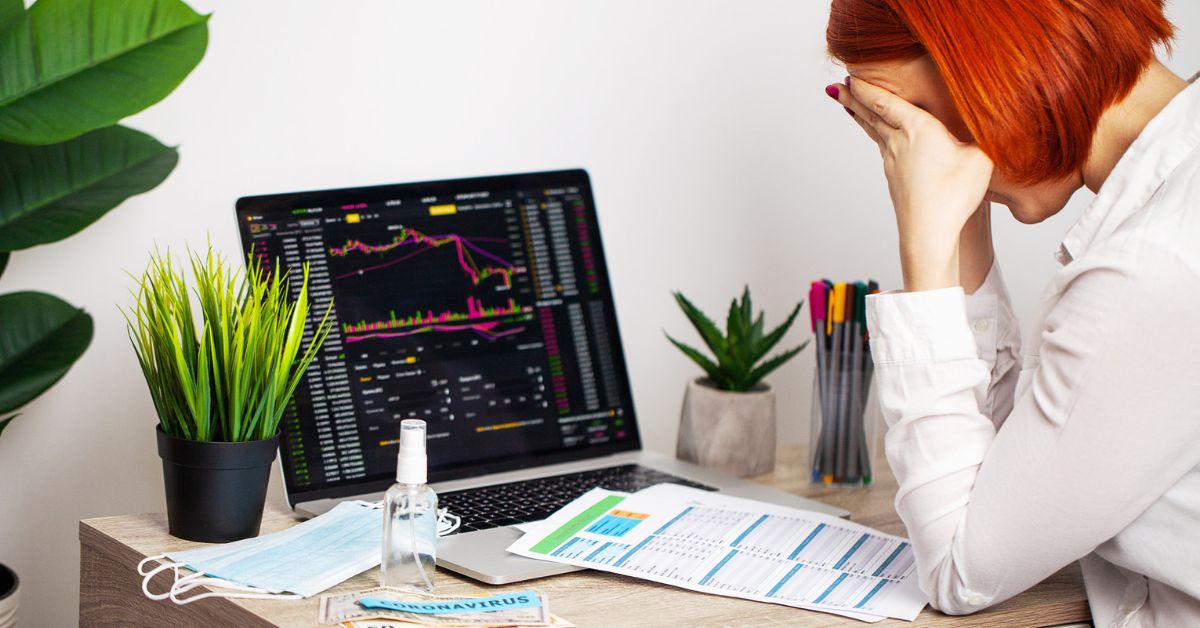Mastering trading psychology is crucial for achieving success in the financial markets. A good trader doesn’t just analyze charts and trends; he also manages his emotions and mindset. Building a solid psychological foundation can set you apart from other traders.
In this article, we will explore key strategies for mastering trading psychology. Understanding and controlling your emotional responses can help you make better trading decisions. A robust platform like Prime XBT can be a valuable asset during your trading journey.
Prime XBT offers advanced tools and resources that will help you make informed decisions while managing your psychology. If you have the right platform and mindset, you’ll be able to elevate your trading. So, join PrimeXBT today! Use promo code PRIMEOTT to receive a +7% bonus on your deposit. Let’s dive into how you can achieve psychological mastery in trading.
What is Trading Psychology?

Trading psychology is the study of how emotions impact trading decisions. It examines how mental state influences trading behavior. Key emotions include fear, greed, and overconfidence. These emotions can lead to impulsive actions and poor decisions.
Understanding trading psychology helps traders manage these emotions. It involves recognizing emotional triggers and their effects on trading performance. By mastering trading psychology, traders can make more rational choices.
This discipline is essential for maintaining discipline and consistency. Practical trading psychology helps manage risk and avoid common pitfalls. Ultimately, it aims to enhance overall trading performance by fostering a balanced mental approach.
Common Trading Psychology Challenges
Trading psychology encompasses various challenges that can impact performance. Identifying and overcoming these challenges is crucial to improving trading results. Each emotional hurdle requires specific strategies to manage effectively.
Fear
Fear of loss can lead to hesitation and missed opportunities. It often causes traders to second-guess their decisions. Fear can make you avoid taking necessary risks. This hesitation can hinder long-term profitability. Overcoming fear involves building confidence through practice and experience.
Greed
Greed drives traders to seek excessive profits. It often leads to overtrading and taking high risks. Greedy behavior can cause traders to ignore risk management rules. It can result in significant losses. To manage greed, set clear goals and stick to your trading plan.
Overconfidence
Overconfidence leads to underestimating risks and overestimating abilities. It may cause traders to ignore market signals. Overconfident traders often make impulsive decisions. This behavior can result in substantial losses. Review your trades and stay grounded to combat overconfidence.
Stress and Anxiety
Stress and anxiety can impair decision-making and judgment. These emotions can lead to erratic trading behavior. High-stress levels may result in poor performance. Managing stress through relaxation techniques can improve focus and decision-making.
The Impact of Emotions on Trading

Emotions deeply influence trading decisions and overall performance. Understanding how they affect trading can help you manage their impact.
How Emotions Affect Decision-Making
Fear can cause hesitation and missed trading opportunities. It makes traders second-guess their decisions and avoid taking risks. Greed drives traders to seek excessive profits, leading to high-risk behavior. This can result in overtrading and ignoring risk management.
Overconfidence may lead to underestimating risks and overestimating abilities. This often results in poor decision-making and significant losses. Emotions such as these can distort judgment and lead to impulsive actions.
Emotional Biases and Their Effects
Loss aversion makes traders more sensitive to losses than gains. This sensitivity can lead to risk aversion and avoidance of necessary trades. Confirmation bias causes traders to favor information that supports their existing beliefs.
It can result in ignoring valuable contrary evidence, leading to poor decisions. These biases can skew one’s perception of market conditions and affect trading performance. Recognizing these biases helps one make more rational decisions.
Recognizing and Managing Emotional Triggers
Identify specific situations that trigger emotional responses, such as market volatility or personal financial stress. Being aware of these triggers helps in managing reactions more effectively.
Implement strategies like mindfulness and self-reflection to maintain emotional control. Developing these practices can help you respond to market changes without emotional interference. Manage your emotional triggers so you can make more rational trades.
How to Master Trading Psychology

Mastering trading psychology involves adopting techniques to manage emotions and improve decision-making. Strategies like mental resilience and mindfulness can enhance your trading performance. Let’s explore essential methods for handling psychological challenges.
Develop Mental Resilience
Mental resilience is vital to overcoming setbacks and losses in trading. It involves accepting that losses are a natural part of the process. Building resilience means focusing on long-term goals rather than immediate outcomes. Practice self-reflection and maintain a positive mindset through daily affirmations.
Regularly remind yourself of your trading plan and its objectives. You can manage stress and stay focused on your strategy if you develop mental resilience. It helps you stay consistent and avoid emotional reactions that could hurt your trading.
Implement Mindfulness Techniques
Mindfulness helps manage stress and improve focus during trading. It involves practices like meditation and deep breathing exercises. These techniques help you stay calm and composed, reducing impulsive decisions. Incorporate mindfulness into your daily routine to enhance emotional control.
Regular practice can improve your ability to handle market fluctuations and maintain a clear mind. By staying present and aware, you can make more rational decisions and avoid letting emotions dictate your trading actions. Mindfulness helps create a balanced approach to trading and managing psychological pressures effectively.
Establish a Trading Routine
A structured trading routine promotes consistency and discipline. Begin by creating a daily plan outlining your trading activities and goals. Stick to this routine to develop a steady approach and avoid impulsive decisions. A routine includes pre-market preparation, trade analysis, and post-market review.
Following this plan regularly helps maintain focus and reduce emotional reactions. A routine makes it easier for you to stick to your trading strategy because it creates a systematic approach. This discipline is crucial for achieving long-term success and managing the psychological aspects of trading.
Use Visualization Techniques
Visualization techniques can significantly boost confidence and focus. Spend time imagining successful trading scenarios and positive outcomes. Visualizing your strategy and its execution helps reinforce your goals. This mental rehearsal prepares you for real trading situations and enhances your confidence.
Practicing visualization regularly aligns your mindset with your trading goals. This approach helps in building a positive mental attitude and can improve your performance. Visualization techniques are a powerful tool for mentally preparing for trades and staying focused on your desired results.
Set Realistic Goals
Setting realistic and measurable trading goals is essential for progress. Define achievable short-term and long-term objectives. Regularly review and adjust these goals based on your performance and market conditions. Realistic goals provide clear direction and help maintain motivation.
When you set specific targets, your trading journey is structured. This is also helpful in measuring success and identifying areas for improvement. Achieving set goals boosts confidence and reinforces disciplined trading behavior, leading to better overall performance and psychological stability.
Maintain a Trading Journal
Keeping a detailed trading journal is vital for improving performance. Record every trade, including your decisions and emotions at the time. Analyzing this journal helps identify patterns and learn from past experiences. Regular reviews of your journal can reveal insights into your trading behavior and emotional responses.
This practice allows you to refine your strategies and avoid repeating mistakes. Documenting your trades and reflecting on your actions will enable you to understand your strengths and areas for improvement better.
Seek Feedback and Mentorship
Engaging with trading communities and mentors can provide valuable feedback and insights. Connect with experienced traders to learn from their experiences and advice. Use their feedback to refine your strategies and improve your approach. Mentorship offers guidance and support, helping you navigate challenges and enhance your skills.
By seeking feedback, you gain different perspectives and can address areas that need improvement. Learning from others’ experiences accelerates your growth and helps you master trading psychology more effectively. Building these connections fosters a supportive environment for continuous development.
Read More: Trading Psychology: How To Master Your Mindset
Conclusion
You now know that investing in financial markets requires a profound understanding of trading psychology. The ability to manage emotions like fear, greed, and overconfidence can lead to better trading decisions. Using mindfulness, routines, and visualization techniques can enhance your psychological resilience.
Are you tired of losing your money due to panic selling, FOMO, overtrading, and bag holding? We recommend the Vestinda trading app, which eliminates emotional decision-making with automated crypto trading strategies. It helps you trade more effectively and manage your emotions better.



